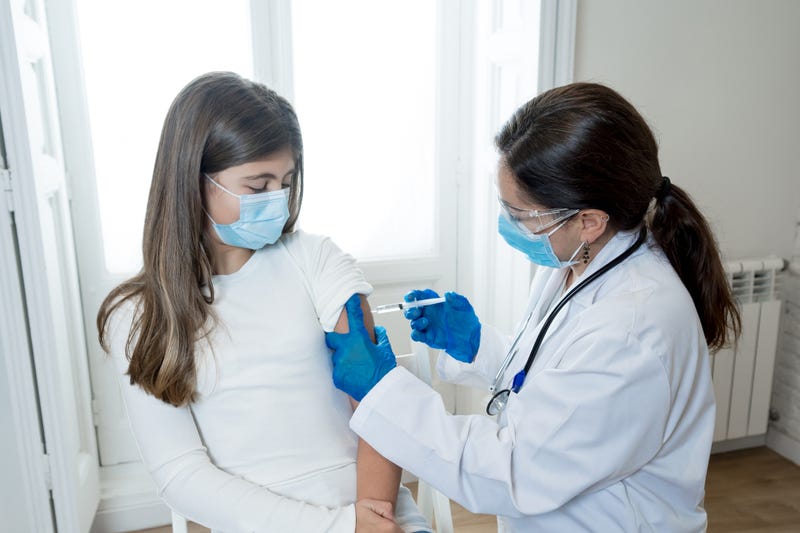
It’s been a month of extensive progress for the COVID-19 vaccine – from approval of the booster shot to the distribution of the vaccine for children ages 5-11 – and the increase in vaccination has led to an increase of jurisdictions mandating the vaccine for various criteria.
Mandates have been accepted across the country especially for the older bracket of kids, said Dr. Eric Feldman, Deputy Dean for International Programs and professor of International Law, and Medical Ethics & Health Policy at University of Pennsylvania Law School on Wednesday’s Ask an Expert.

This is due to several months of experience that we know have under our belts, he told KCBS Radio's Holly Quan and Eric Thomas. But there is still a good amount of reluctance to mandate the vaccine for kids age 5-11, partially because it is still so new.
Feldman said that in order to contain the virus, a mandate for that age group should be enacted. "But I think there’s a real cost," he said. "I think schools that have mandated the vaccine very quickly for the 5-11 are seeing significant pushback from parents."
The parents resisting these rules are not necessarily anti-vaxxers, he said. These are parents who feel that it’s just too soon to require it, that they don’t know anyone who’s had their kids that age vaccinated yet. "Everyone who is a parent I think appreciates the caution that parents exercise with their kids," said Feldman.
The pushback is nothing new, it has been an issue since vaccines started being distributed last year. But as the need for increasing immunity increases, so does the resistance. "I think there’s an odd conflict here," he said. "Between what’s good public health policy and what’s good public policy."
Good public health policy wouldn’t just require the vaccine, it would make it compulsory, regardless of how the parents feel, said Feldman. "But gosh, that would be a terrible idea,” he said. “I don’t think anyone would advocate doing that."
The best way for people to get vaccinated is if it’s voluntary. An example of this in effect is Japan, a country that has been reluctant to mandate vaccination, but has one of the highest vaccination rates, he said.
Ideally, parents would wind up wanting to get their children vaccinated. "But the question is, how do we get there?" Feldman said.
"Mandates work in all sorts of contexts," he said. But even when the vaccine was first approved for adults in December of last year, Rutgers University, the first school to mandate vaccination, waited until around three months later to do so.
"I think that lag was the result of thoughtful, smart thinking about the need for people to become comfortable with the idea of getting vaccinated before they were told to do so," said Feldman
Parents are in that bind right now, he said. With a little bit of a wait, it’s more likely that the majority of people will come around.


